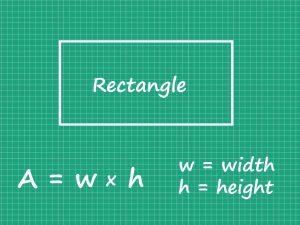Key Concepts
- Functions in function notation.
- Linear function rule.
- Graph of a linear function.
- Solve problems related to linear function.
Functions, domain & range
Function
A relation where every input has a single output.
Domain and range are important values that help to define a relation. The domain takes all the possible input values from the setoff real numbers and the range takes all the output values of the function.
Question 1: For the set of ordered pairs shown, identify the domain and range. Does the relation represent a function?
{(1, 8), (5, 3), (7, 6),(2, 2), (8, 4), (3, 9), (5, 7)}{1, 8, 5, 3, 7, 6,2, 2, 8, 4, 3, 9, (5, 7)}
Solution:
Given ordered pair: {(1, 8), (5, 3), (7, 6),(2, 2), (8, 4), (3, 9), (5, 7)}{1, 8, 5, 3, 7, 6,2, 2, 8, 4, 3, 9, (5, 7)}
Domain: {1, 5, 7, 2, 8, 3, 5}{1, 5, 7, 2, 8, 3, 5}
Range: {8, 3, 6, 2, 4, 9, 7}{8, 3, 6, 2, 4, 9, 7}
The relation represents a function because every input has a different output.
Question 2: The flowchart shows the steps of a math puzzle. Record and fill the result in the tabular column. Make a prediction about what the final number will be for any number. Explain.


Solution:
From the flowchart think of numbers 1, 2, 3, 4, and 5 and fill the table given below:

From the table each output is a multiple of 2.
So, for any number/value of x, the output will be 2 times the input value.
Function notation
Function notation is a method for writing variables as a function of other variables.
The variable y, becomes a function of x. The variable x is used to find the value of y.
Function notation helps to distinguish between the different functions.
Function notation can use letters other than f. Other commonly used letters are g and h.
Consider the equation y = 3x−2.
Write the equation y = 3x−2
using function notation.
The function f is defined in function notation by f(x) = 3x−2
Example 1:
What is the value of h(x) = 7x+1 when x = 5?
Solution:
Evaluate h(x) = 7x+1 for x = 5
If h(x) = 7x+1, then h(5) = 36
Example 2:
What is the value of g(x) = 5−3x when x = 2?
Solution:
Evaluate g(x )= 5−3x for x = 2.
If g(x) = 5−3x, then g(2) = −1
Linear function rule
Example 1:
The cost to make 4 bracelets is shown in the table.

Determine the cost to make any number of bracelets.
Solution:
Step 1:

The relationship is linear.
Step 2:
Write a function using slope-intercept form for the rule.
f(x) = mx+b
f(x) = 15x+b
Step 3:
Find the value of b
Substitute any ordered pair from the table.
17 = 15(1)+b
2=b
So, the function is
f(x) = 15x+2
Example 2:
Write a linear function for the data in the table using function notation.

Solution:
Step 1:

The relationship is linear.
Step 2:
Write a function using the slope-intercept form for the rule.
f(x) = mx+b
f(x) = 4x+b
Step 3:
Find the value of b by substituting any ordered pair from the table.
15 = 4(3)+b
3 = b
So, the linear function is
f(x) = 4x+3
Analyze a linear function
Question:
Tamika records the outside temperature at 6:00 A.M. The outside temperature increases by 2°F every hour for the next 6 hours. If the temperature continues to increase at the same rate, what will the temperature be at 2:00 P.M.?

Solution:
Step 1:
Write a function that models the situation:
f(x) = mx+c
Since the temperature at 6:00 A.M. is −3
and the temperature is increasing at the rate of 2°F every hour.
So,
c = −3 & m = 2
f(x) = 2x−3
Step 2:
Sketch the graph of the function.

Step 3:
Find the value of y when x = 8.
y = 2(8)−3 = 13
Given that the temperature continues to increase at the same rate, the temperature at 2:00 p.m. will be 13°F.
The graph of f(x) = 2x−3 is a line.
Use linear functions to solve problems
Question:
A chairlift starts 0.5 mi above the base of the mountain and travels up the mountain at a constant speed. How far from the base of the mountain is the chairlift after 10 minutes?

Solution:
Step 1:
Linear function to represent the distance, the chairlift travels from the base of the mountain.
Let the time (in minutes) be t
Given that the speed of the chairlift is in miles per hour, convert the speed to miles per minute.
6 miles / hour×1 hour / 60 minutes= 0.1 mile / minute
Distance traveled = rate of the chairlift × time traveling + distance from the base Distance traveled = rate of the chairlift × time traveling + distance from the base
d(t) = 0.1×t+0.5
d(t) = 0.1t+0.5
Step 2:
The distance of the chairlift from the base of the mountain at any time is represented by the linear function,
d(t) = 0.1t+0.5
Now, evaluate the function for
t = 1
d(10) = 0.1×10+0.5
= 1+0.5
= 1.5
So, after 10 minutes, the chairlift will be 1.5 miles up the mountainside.
Exercise
- What is the value of f(x)=-2x-5 when x=0, x=1, x=2, & x=-1?
- Write a linear equation for the data in the table given below using function notation.

- For a function f(x)=ax+b, f(0)=3 and f(1)=4. Determine the coefficients that satisfy the equation.
Concept Summary

What we have learned
- Evaluate functions in function notation.
- Write a linear function rule.
- Analyze a linear function.
- Use linear functions to solve problems.
Related topics
Addition and Multiplication Using Counters & Bar-Diagrams
Introduction: We can find the solution to the word problem by solving it. Here, in this topic, we can use 3 methods to find the solution. 1. Add using counters 2. Use factors to get the product 3. Write equations to find the unknown. Addition Equation: 8+8+8 =? Multiplication equation: 3×8=? Example 1: Andrew has […]
Read More >>Dilation: Definitions, Characteristics, and Similarities
Understanding Dilation A dilation is a transformation that produces an image that is of the same shape and different sizes. Dilation that creates a larger image is called enlargement. Describing Dilation Dilation of Scale Factor 2 The following figure undergoes a dilation with a scale factor of 2 giving an image A’ (2, 4), B’ […]
Read More >>How to Write and Interpret Numerical Expressions?
Write numerical expressions What is the Meaning of Numerical Expression? A numerical expression is a combination of numbers and integers using basic operations such as addition, subtraction, multiplication, or division. The word PEMDAS stands for: P → Parentheses E → Exponents M → Multiplication D → Division A → Addition S → Subtraction Some examples […]
Read More >>System of Linear Inequalities and Equations
Introduction: Systems of Linear Inequalities: A system of linear inequalities is a set of two or more linear inequalities in the same variables. The following example illustrates this, y < x + 2…………..Inequality 1 y ≥ 2x − 1…………Inequality 2 Solution of a System of Linear Inequalities: A solution of a system of linear inequalities […]
Read More >>Other topics











Comments: